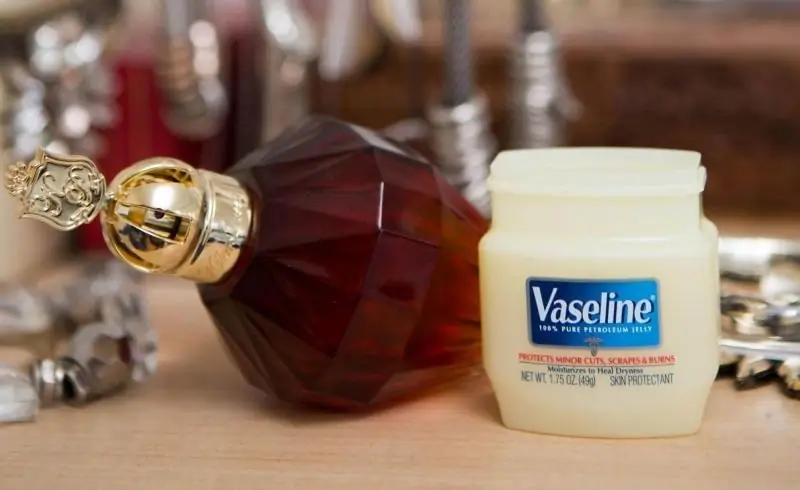
Table of contents:
- Author Bailey Albertson [email protected].
- Public 2023-12-17 12:53.
- Last modified 2025-01-23 12:41.
15 old Russian swear words that will replace profanity

“It is better to be a good person, swearing obscenities, than a quiet, well-bred creature,” said the brilliant Faina Ranevskaya. In situations where you really want to express yourself, but circumstances do not allow, it is worth replacing the modern profanity with native Russian, juicy curses. Personal pleasure and confusion are guaranteed.
Dumbfounded
"Dumbfounded". So they talked about a person who was ignorant, stupid and clumsy. Swearing comes from the archaic verb "dumbbell".
Literally the word meant "to become a pillar of surprise", "to be dumbfounded", hinting at a "dumb tree". An equivalent substitute for "dumbfounded" in the old days were the nicknames "chump", "stupid cudgel" and "lump with eyes."
Grabastic
Thieves, robbers and other lovers of appropriating someone else's name were called "grabastards". Swearing "grabastic" is a derivative of "rob". According to philologists, the verb itself arose on the basis of the original image "to collect hay with a rake."
Hence the expression "grabbing hands" when it comes to greedy, greedy people. Like the grabusty, they rake everything they can reach.
Zakhukhrya
If modern punk was in the distant past, he would be "fucked up". This is how in the old days a man with tousled, disheveled hair was called. Well, or affectionately - "zhuhryayka".
Another old Russian synonym for fans of outrageous hairstyles is "shpyn head". If the owner of tousled hair was distinguished, moreover, by clumsiness and general slovenliness, then he should be "bezpelyuha".
Sivolap
The clumsy, rude, ill-mannered and awkward peasant was called "sivolap", hinting at a clumsy bear. The uncouth peasant bumpers were also often called "pentyuhs".
But clumsy, clumsy women were called "corpses". If they were also fat, then they were "strippers".
Whore
Loving hunters for skirts were called derisively and affectionately as "whores" or "kuroshupami". Those, who pinched the girls behind the barn, were teased - "innocent".
And if a man indiscriminately dragged after all the women in a row, then he received the nickname "balakhvost". Apparently because he really loved to pamper his "tail". Walking women also had specific nicknames - "pleha", "gulnya", "yonda", "mamoshka", "drag", "shlenda".
Mouflon
A stupid, short-sighted, but extremely stubborn person was called "mouflon", by analogy with the ruminant cloven-hoofed animal of the ram genus. And if a stubborn fool was also snobby, then he received the title of "Mordophile".
Sometimes they called a mouflon just a bad person. Not a bad way to judge without using harsh curses.
Horonyaka
In Russia, fearful, cowardly people were not liked and called "funerals". Derived from the word "to be buried", i.e. hide.
It was with this outdated word that Tsar Ivan the Terrible "sealed" director Yakin in the comedy "Ivan Vasilyevich Changes His Profession". And not in vain: the filmmaker was really scared to shivering knees by the historical tyrant, who, for some unknown reason, ended up in a modern Moscow apartment.
Valandai
The idler was loudly scolded by the people “valandai”, from the verb “valandatsya” - to postpone business, to pull rubber. Also idlers and lazy people were called "kolobrods" and "mukhobluds".
These curses were especially common among village women who were dissatisfied with their husbands. And Smolensk women called their husbands who did not want to help with the housework and carry out their direct duties with the savory word "shlynda".
Goat
If you don’t know how to sing, don’t take it, otherwise you will be a "goat-loader". So the people scolded the bad singers with disgusting, high, trembling voices.
The word comes from the expression "to tear the goat" - to shout songs. Probably, this was how they honored neighbors who did not observe silence.
Screeching
For young women with terrible vocal abilities, there was also a comic name - "screeching". According to Dahl's Explanatory Dictionary, these are women with a thin, shrill singing voice. Traditionally, at women's gatherings, wool was spun and sang. Apparently, those who squealed rather than sang were nicknamed "screeching screeches".
But the girls, who could not sit still, were aptly dubbed "superbiggies". In the old days, "tail" was called the "fifth point", so the further course of folk thought is extremely clear. By the way, a married woman with a big backside often received the nickname "zaguzatka".
Knottail
In the old days in Russia, for slander and gossip, one could lose the language. However, this could not stop the lovers to discuss someone else's life.
Among the people, such women were nicknamed "vyzhikhstokami", hinting that they collect and "knit" rumors around, and then, like post birds, carry them on their tail. Also, gossips were scolded as "mutants", "henchmen", "sneezes".
Kiselay
"Kiselai" or "kolupay" spoke about people who were sluggish and very slow, from whom there was little use. And they also called a whiny, capricious child "jelly".
Fool-jelly thinks for a long time. He is clumsy, sluggish, loses everything, breaks, drops. In short, a loser.
Blown
"Blown" is a curse word for swindlers and deceivers of all stripes. And a gullible person who easily became their victim was called "fofan".
By the way, the concept "fofan", which defines a person as stupid or quiet and intimidated, is still used in thieves' jargon.
Ohalnik
"Ohalnik". That was the name of the mischievous, foul language and ugly. In the old days, ogalniks were feared, because they were people who did all sorts of lewdness, without thinking about the consequences. So to speak, out of love for art.
Ohalniks loved to molest women. Such impudent people were not welcomed and condemned for indecent behavior.
Tyuryuhailo
"Tyuryuhailo". Another category of sluts, but very sloppy, not caring about their appearance at all. If at the same time a person smelled badly, then they spoke of him as "weak."
A closely related word - "hailo" - dirty, littered with garbage, unsightly dwelling. Probably the habitat of that very slob.
Recommended:
Do-it-yourself Drill Repair: How To Connect A Button, Replace Brushes, Check The Rotor, Repair The Anchor, Instructions With Photos And Videos

Electric drill device. How to properly disassemble and assemble a drill. Possible malfunctions and remedies. Required tool
What To Cook For Breakfast With Eggs: Quick And Delicious Recipes That Can Replace The Classic Scrambled Eggs

A selection of recipes for making an egg breakfast. Step-by-step instructions with photos and videos
How To Replace Eggs In Baking: What Can Be Added To The Dough, How To Grease, Banana And Other Options + Photos And Videos

People are divided into two categories - those who do not use eggs for food, and those who forgot to buy them. In the article you will find ways to replace this product for baking
What Can Replace Sodium Tetraborate For Slime (lizun)

What mixtures can replace sodium tetraborate in the manufacture of slime, slime, handgam at home
What Expensive Products Can Replace Petroleum Jelly

What expensive cosmetics can be replaced with cheap petroleum jelly?
